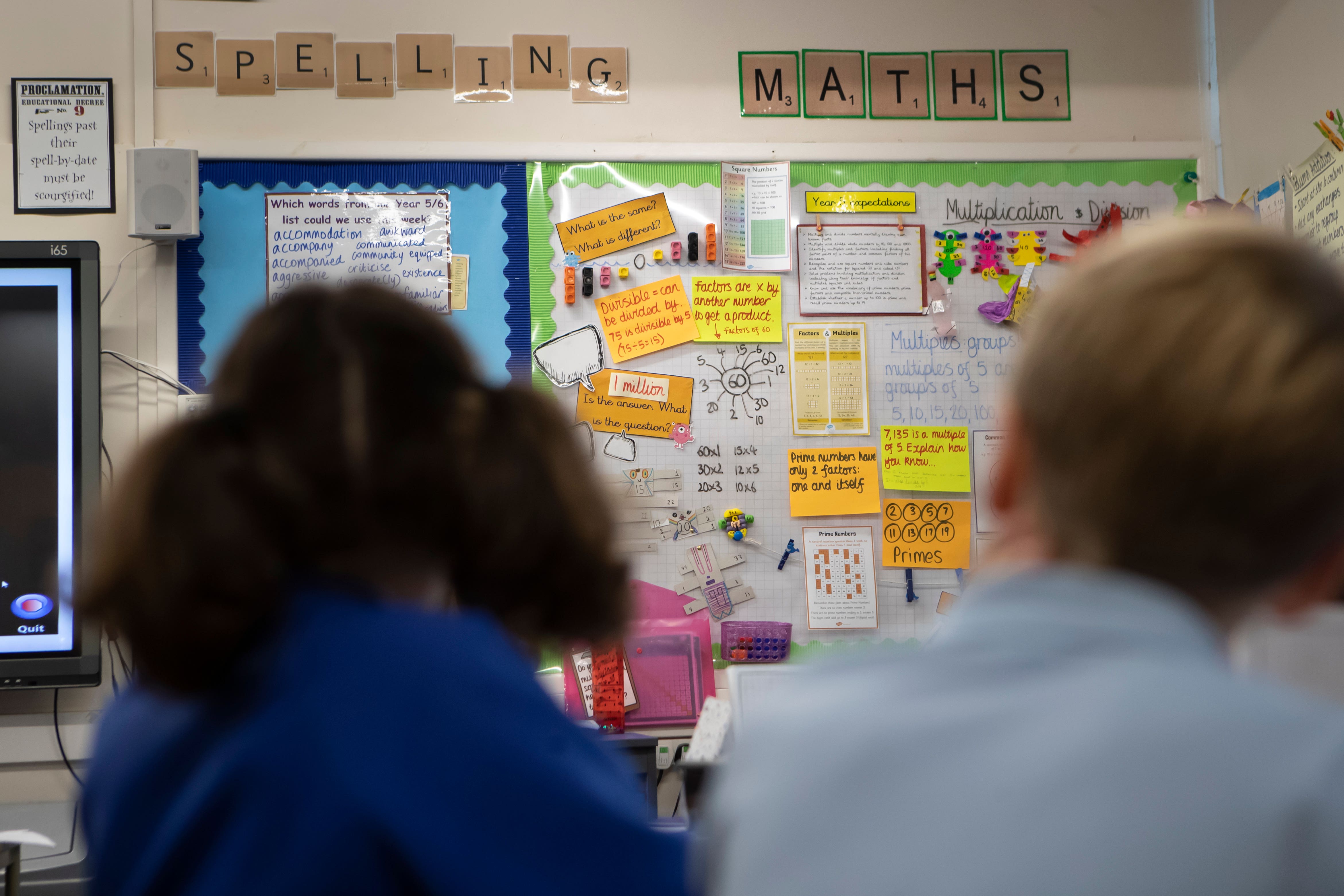Cabinet advised closing schools was unlikely to greatly slow Covid, inquiry told
Then Scottish education secretary John Swinney said the situation was moving at an ‘absolutely ferocious pace’ in the early days of the pandemic.

Your support helps us to tell the story
From reproductive rights to climate change to Big Tech, The Independent is on the ground when the story is developing. Whether it's investigating the financials of Elon Musk's pro-Trump PAC or producing our latest documentary, 'The A Word', which shines a light on the American women fighting for reproductive rights, we know how important it is to parse out the facts from the messaging.
At such a critical moment in US history, we need reporters on the ground. Your donation allows us to keep sending journalists to speak to both sides of the story.
The Independent is trusted by Americans across the entire political spectrum. And unlike many other quality news outlets, we choose not to lock Americans out of our reporting and analysis with paywalls. We believe quality journalism should be available to everyone, paid for by those who can afford it.
Your support makes all the difference.Scottish ministers were advised closing schools would not slow the transmission of Covid-19 “to a great extent” just days before the decision was made, an inquiry has heard.
The decision was taken to close schools on March 20 2020, with then education secretary and deputy first minister John Swinney announcing the measure the previous day.
But in a paper submitted to the cabinet on March 17, advisers said there would be no great effect caused to the transmission of the virus, and it could in fact cause greater risk to older people seeing their grandchildren.
“Very active consideration was being given to the possible closure of schools and other educational establishments, but the evidence was not yet clear,” the paper said.
“The epidemiological evidence did not suggest that this measure would slow the transmission of Covid-19 down to a great extent (and might in fact cause some additional infections – for example by increasing children’s exposure to grandparents over 70).”
The paper continued that keeping schools open could put children with certain medical conditions – such as asthma – at risk, while some schools may be forced to close regardless if parents decided to keep pupils at home or teachers fell ill from the virus, both of which Mr Swinney said had begun to happen.
Giving evidence to the UK Covid-19 Inquiry on Tuesday, Mr Swinney said events were moving “at an absolutely ferocious pace” in the early days of the pandemic, something reflected in the paper, which said: “The debate on school opening was ongoing, and it seemed likely that the balance of evidence would change – possibly over the coming days.”
On the evening of March 17 2020, Mr Swinney said education officials had spoken to the UK Government and other devolved administrations, telling him they “thought it likely” that the Scientific Advisory Group for Emergencies (Sage) would advise closure, reversing its position from earlier that month.
The inquiry heard that data used to come to this position was not Scotland-specific.
Asked if English data was used for the opinion, Mr Swinney told the inquiry: “I don’t know that case, but obviously my officials were receiving advice from our clinical advisers – principally the chief medical officer – at that time, who took the view that was reflected in the advice that came to me, that the appropriate step to take was to announce the closure of schools.”
Asked if he relied on the Sage advice to come to his decision, Mr Swinney said: “I did, that’s correct, yes.”
But he said he “did not” have a chance to “interrogate Sage” about how the advice would apply to Scotland.
Lead counsel to the inquiry Jamie Dawson KC then asked if it was “appropriate” to base the decision to close schools on advice Mr Swinney had not scrutinised, with the former minister responding: “I think it was.
“Because I think it was pretty clear that what was happening in London was coming our way and it would be coming our way pretty shortly thereafter.”
Mr Swinney said the Scottish Government had no time to carry out any equality impact assessment on children’s learning and development if schools were closed.
Mr Swinney said: “At that moment we did not have the time or the opportunity to carry out the assessment.”
Mr Dawson asked: “Does that mean none?”
Mr Swinney said: “That’s correct, yes.”
The former deputy first minister said they encouraged local authorities to ensure appropriate provision of education was put in place to support children and young people at that time.
The inquiry also heard that no impact assessment into children’s mental health due to the school closures was undertaken.
Mr Swinney said the Scottish Government did not consider any other alternative to closing schools completely in March 2020.
He was asked by inquiry chair Lady Hallett if they had ever considered any alternatives.
Mr Swinney said: “Not at that moment, my lady, because we felt that the situation we were facing was at such a magnitude.
“We did consider all of those questions at later stages for the return of pupils to blended learning.”
Mr Swinney said he did not have advice in front of him saying he could bring back schools earlier.
The inquiry heard Professor Mark Woolhouse said that in April and May 2020, schools contributed little to the spread of the virus.
He argued repeatedly they could have reopened in May – Mr Dawson asked Mr Swinney why he did not take account of that advice.
Mr Swinney said: “I did not have advice in front of me saying I could bring schools back earlier.”